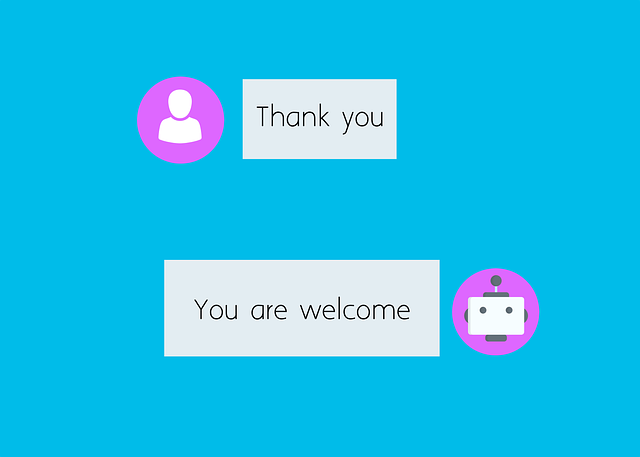Small businesses often skip AI chatbots due to misconceptions about their capabilities. However, integrating these tools through AI assistants can revolutionize operations and customer service by providing cost-effective solutions for various tasks. Benefits include 24/7 accessibility, enhanced personalization, and faster response times. Challenges include initial costs, technical complexity, data privacy concerns, and fear of replacing human interaction. To overcome these hurdles, businesses should invest in high-quality training data, personalize AI experiences with customer data (while ensuring privacy), and offer an option to escalate issues to human agents. Successful implementations have shown that AI chatbots can significantly enhance customer service and streamline operations for small businesses.
In today’s digital landscape, small businesses are increasingly exploring the benefits of integrating AI chatbots and assistants into their operations, particularly for AI customer service. While the potential is vast, many face hurdles in implementation. This article delves into understanding the advantages of AI chatbots, identifying common challenges like cost and integration issues, and offering strategies to overcome these obstacles. We also explore real-world success stories, demonstrating how businesses have harnessed AI assistants to enhance customer experiences.
- Understanding AI Chatbot Benefits for Small Businesses
- Common Hurdles in Implementing AI Assistants
- Strategies to Overcome AI Customer Service Challenges
- Real-World Success Stories: AI Chatbot Integration
Understanding AI Chatbot Benefits for Small Businesses

Small businesses are often hesitant to adopt AI chatbots due to misconceptions about their benefits. However, integrating an AI assistant can significantly revolutionize their operations and customer service strategies. These advanced tools offer a cost-effective solution for handling various tasks, from initial customer inquiries to more complex support issues. By deploying AI customer service agents, business owners can enhance accessibility and ensure round-the-clock assistance without incurring the costs of hiring additional staff.
Moreover, AI chatbots provide personalized interactions, allowing businesses to build stronger connections with their customers. They can tailor responses based on user history and preferences, creating a more engaging experience. With natural language processing capabilities, these assistants understand and interpret customer queries accurately, reducing response times and increasing overall satisfaction.
Common Hurdles in Implementing AI Assistants

Implementing AI chatbots and assistants into small business operations presents several challenges. One of the primary hurdles is the initial cost and technical complexity involved in setting up and integrating AI customer service solutions. Many SMEs lack the budget or in-house expertise to invest in robust AI technology, which can deter them from adopting these tools.
Moreover, concerns about data privacy and security are prevalent among small business owners when introducing AI assistants into their operations. Protecting sensitive customer information is crucial, and any perceived or actual breach could damage trust and reputation. Additionally, the fear of replacing human interaction with automated systems might cause resistance to AI chatbot implementation, as personal connections and empathy in customer service remain highly valued.
Strategies to Overcome AI Customer Service Challenges

Implementing an AI chatbot can be a game-changer for small businesses aiming to enhance their customer service, but it comes with its challenges. One of the primary hurdles is ensuring the AI assistant provides accurate and relevant responses, which requires rigorous training and continuous learning. Businesses should invest in quality data sets to train their chatbots, covering a wide range of potential customer queries. Regular updates and testing are crucial to improve accuracy and handle emerging issues.
Additionally, personalizing the AI customer service experience is essential to build customer trust and loyalty. This can be achieved by integrating customer data while maintaining privacy and security. Customization allows the chatbot to offer tailored solutions, creating a more human-like interaction. Businesses should also consider offering an option for customers to escalate issues to human agents when needed, ensuring a balanced blend of automation and personal touch.
Real-World Success Stories: AI Chatbot Integration

Despite the challenges, numerous small businesses have successfully integrated AI chatbots into their operations, reaping significant benefits in terms of enhanced customer service and operational efficiency. For instance, a boutique online clothing retailer implemented an AI assistant to handle basic customer inquiries, product recommendations, and order updates, freeing up human agents to focus on more complex issues. This strategy not only improved response times but also boosted customer satisfaction scores.
Another successful case involves a local bakery that deployed an AI-powered chatbot on its website and social media platforms to manage customer orders, take special requests, and even provide personalized suggestions based on past purchases. The result was a seamless, 24/7 ordering experience for customers, increasing online sales by 30% within the first quarter of implementation. These real-world success stories highlight the transformative potential of AI chatbots in transforming small businesses’ customer service and operational landscapes.
